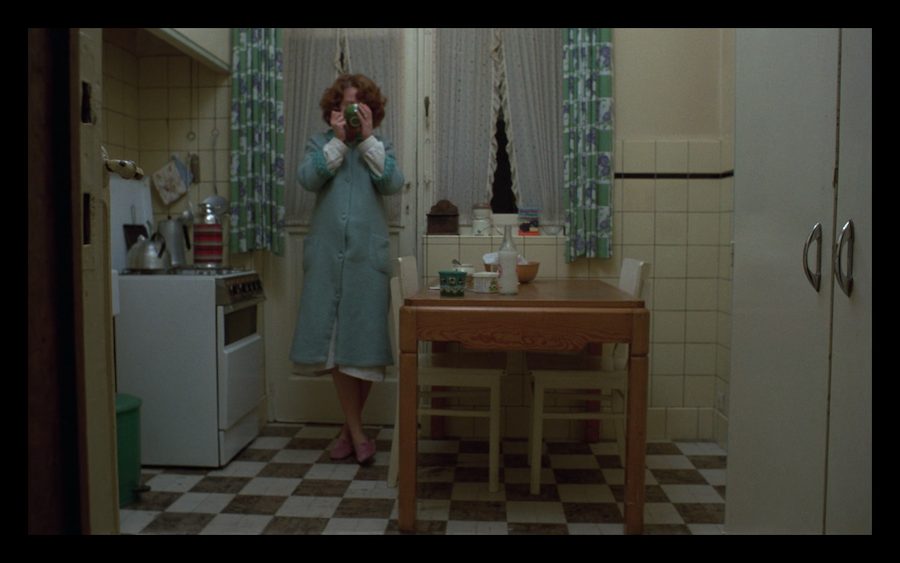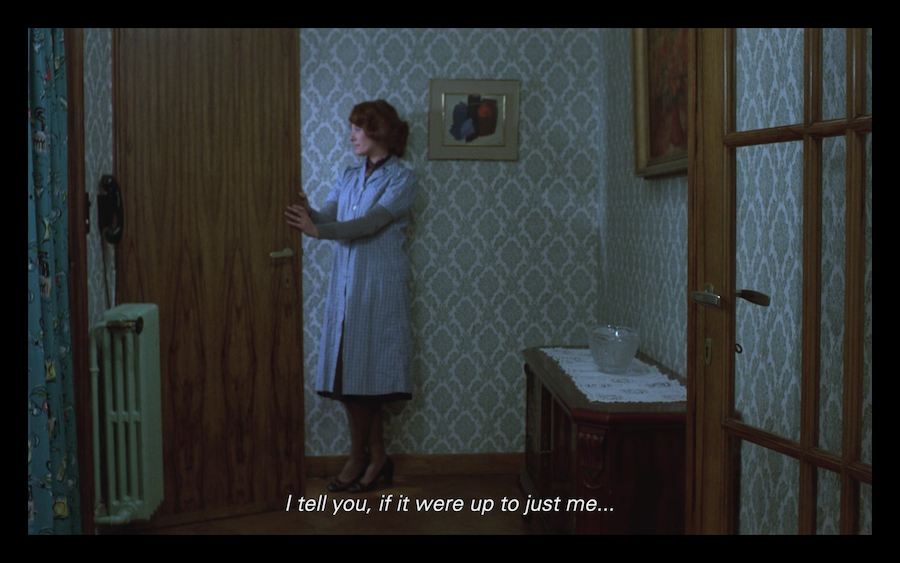Recently, I heard Jeanne Dielman described as “three and a half hours of a woman in her apartment going about her daily life. I watched it once in college when I was really depressed.” I decided to watch it based on this description alone. A couple of the IMDB tags for the film are “peeling potatoes” and “existential loneliness,” and I can’t really put into words why the alchemy of of those two things combining lit up my brain, but it did.

Jeanne Dielman is indeed almost three and a half hours. The scenes are long, very long. We sit with Jeanne as she eats an entire bowl of soup with her son, peels potatoes, eats an entire sandwich, prepares coffee, runs her errands, moves from room to room. There are no cuts to closer angles, no soundtrack suggesting how we should feel. We live Jeanne’s days alongside her. We are even at her mercy when she walks into a dark room – only when she decides to flick on a light do we get to see what she’s doing.
It’s uncomfortable at times, sure. I admit I did wander off to make a cup of tea at one point and she was still there with her sandwich when I returned. But I think that’s the point. Jeanne Dielman is a story of ritual, anxiety, loneliness, quiet. What better way to make us understand than to hold us there with her? The sense of unease builds very slowly as little blips appear in the rituals we’re familiar with. She faces them calmly, but we know how even something as minor as waking up too early one day has fazed her.
When my mind wandered during the movie, I found that it wandered within the movie itself. I was impressed by technical aspects – for example, how many times did they shoot those long food preparation scenes? There are no cuts at all; what if the actor dropped her handful of meat onto the floor right at the end? Did they have backup meat? Only about three or four minutes elapse as she prepares dinner, but something about being locked in there with her as she quietly gets on with her quotidian task felt strangely meditative.

I also remembered how much I love straightforward stories of the way women live, particularly in the ’60s and ’70s – Margaret Drabble’s novels Jerusalem the Golden and The Realms of Gold, Doris Lessing’s short story “To Room Nineteen.” Just showing their regular lives without embellishment or moralizing; the simple act of it feels somehow rebellious.
Chantal Akerman, Jeanne Dielman’s writer & director, said, “I made this film to give all these actions that are typically devalued a life on film.”




